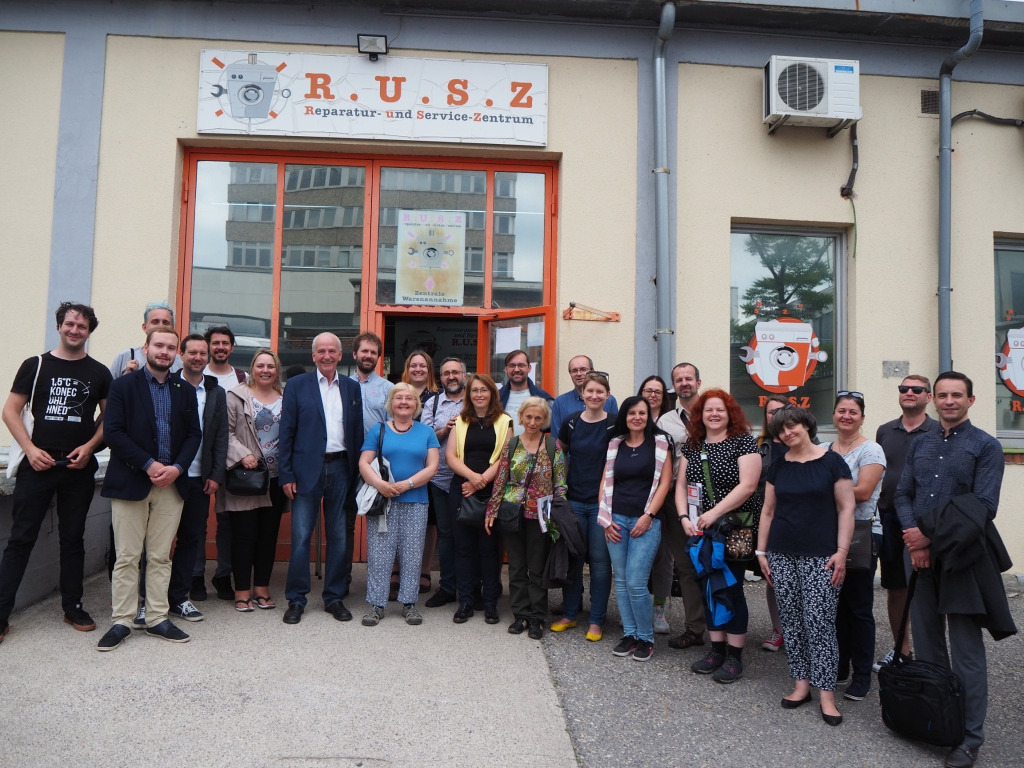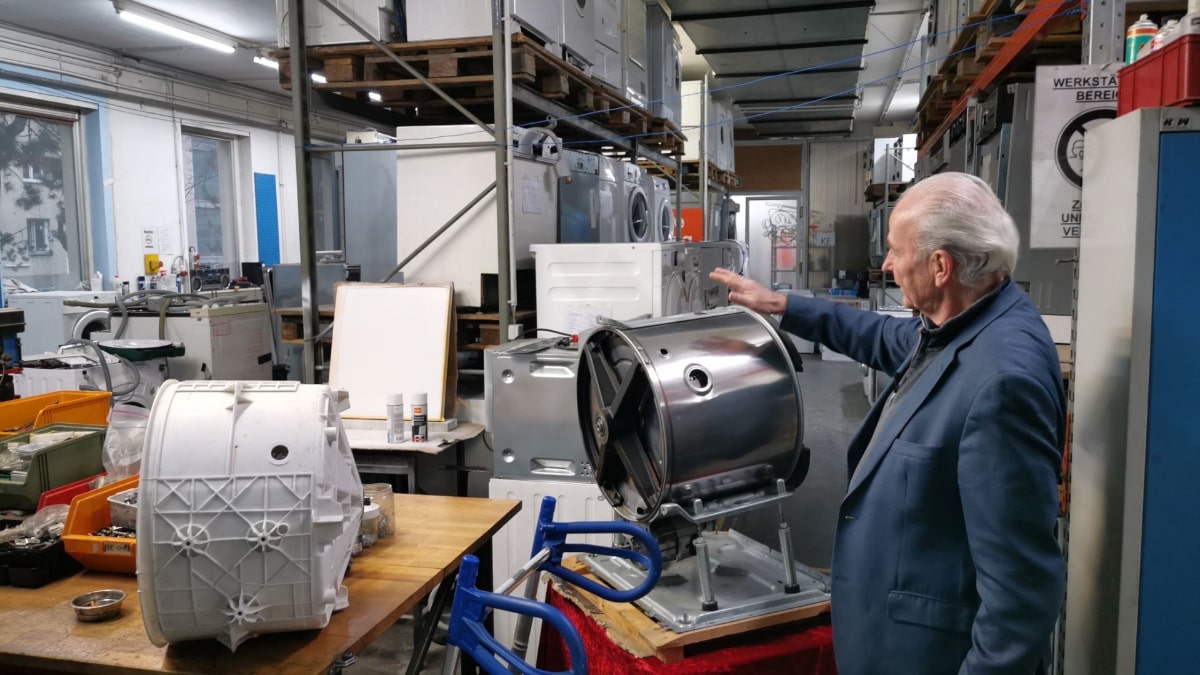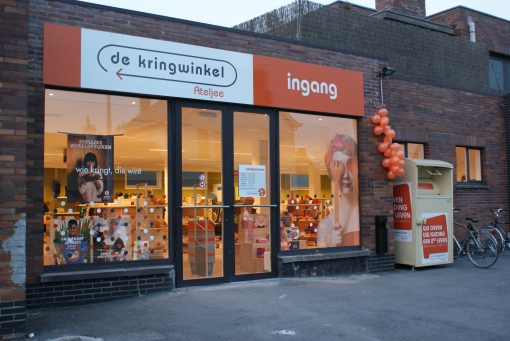The R.U.S.Z. is becoming an international beacon project in the field of repair/reuse and its know-how is in demand and networked internationally like never before.
R.U.S.Z is becoming an international beacon project in the field of repair and the circular economy. With our eco-social franchising system, we set out to provide the model for the circular repair infrastructure of the future, and last year we became the first Austrian company to be included in the United Nations' list of SDG good practices (flagship projects in terms of sustainability) and are thus recommended for replication and upscaling worldwide.
The R.U.S.Z. and its know-how are in demand internationally and networked as never before. This can be seen in the various delegations that have visited us at the Lützowgasse location recently, in the international projects with R.U.S.Z. participation and in the fact that we are regularly invited to share our experiences with other lighthouse projects in Europe. The following is a selection.
Czech delegation at the R.U.S.Z
At the end of May, a delegation of Prague municipal officials, district politicians and journalists, organised by the Heinrich Böll Foundation, visited the R.U.S.Z. to learn about repair in the context of the ecosocial transformation in Europe. Managing Director Sepp Eisenriegler took the group on a tour of our workshops, which have been running at full speed since the repair bonus, and explained how R.U.S.Z. has been opposing a resource-devouring throwaway culture with serious and independent repair services for almost 25 years and successfully influencing Austrian and European regulatory policy in the sense of the circular economy.

At the end of the tour, journalist Petr Palacký wants to know how many environment ministers he has already met in person: "The last five for sure," Eisenriegler laughs, "but most of all they got to know me!"
In addition to Petr Palacký's report on Facebook, an article has also appeared in the Czech Odpadové Forum (Waste Forum).
Northern Macedonia and the marginalised waste pickers
Der Besuch einer nordmazedonischen Delegation Ende März im R.U.S.Z galt ihrer Vernetzung mit Stakeholder*innen der Ministerien für Soziales und Klimaschutz sowie des Umweltbundesamtes mit diversen Sozialunternehmen - wie dem R.U.S.Z - und wurde vom Umweltdachverband im Rahmen des Projekts "Roma und Covid-19: Build Back Better durch zukunftsfähiges Abfallmanagement" organisiert.

Nordmazedonien hat ein schwach entwickelte Abfallwirtschaftssystem knapp an der Kapazitätsgrenze, das kaum internationale Standards erfüllt und in hohem Ausmaß (80% der recycelten Verpackungsabfälle!) auf informelle Müllsammler*innen aus der ethnischen Gruppe der Rom:nja angewiesen ist. Die Menschen, die diese wichtige Arbeit leisten, tun dies unter extrem prekären Umständen (keine soziale Absicherung, “no work – no pay”) und sind während der Pandemie entsprechend unter die Räder gekommen. Der Modernisierung des Systems fehlt es an sinnvollen politischen Regularien, die Professionalisierung und Privatisierung des nordmazedonischen Abfallwesens geht mit einer Verdrängung der ohnehin bereits marginalisierten Müllsammler*innen einher. So die Problembeschreibung des Projekts, das bis Anfang nächsten Jahres eine umfassende Studie u.a. zu der Lage der Rom:nja in Nordmazedonien, einen Bericht zu environmental justice sowie mehrere Workshops und Trainings für ebendiese Zielgruppe auf Basis von Bast-Practice-Wissenstransfers erarbeiten soll. Zum Thema “Elektroschrott” konnte das R.U.S.Z beitragen; wir danken der Projektorganisatorin Sophia Kratz vom Umweltdachverband ganz herzlich!
In addition to representatives of Roma and the North Macedonian administration, a representative of the European Environmental Bureau also took part in the delegation at R.U.S.Z.: Piotr Barczak works on the question of how the European Union can advance the circular economy in globalised supply chains together with India. In his article published for EEB at the end of May, he outlines ways to improve the quality of products on the market, reduce the carbon footprint of supply chains and curb pollution: a win-win situation for Europe and India.
Belgian Kringwinkel Pioneers
In Belgian Flanders, ReUse is widely established in society. This is clearly demonstrated by the success of the so-called Kringwinkel Centres (Circulation Centres). In these independent initiatives, goods are collected, processed and sold in the associated shops. The Kringwinkels combine - very similar to the R.U.S.Z - ecological and social concerns, combine circular economy with green and public welfare oriented work.

At the end of April, the Repair zkt Hub met, a regular event for regional and international networking, where Sepp Eisenriegler for the R.U.S.Z was also present. The aim is to exchange knowledge and experience to strengthen repair capacity and demand and to discuss best practice models. With HERW!N, the Belgian "Collective of Social Circular Entrepreneurs", the R.U.S.Z has a good basis for discussion for future cooperation; a return visit to the R.U.S.Z Vienna is to follow in autumn: "Winning HERW!N as a super franchise partner would not only be good for the establishment of a serious repair infrastructure in the EU, it would also be an honour for us! The Kringloopwinkels and Centres are a model for all ReUse activities in the EU. I have known them for 25 years," says Sepp Eisenriegler.
Conquering the US-Repair-Market
The progress made in Austria and Europe with regard to the "right to repair" and the R.U.S.Z. as a model company is also being talked about transatlantically. The city of Portland (Oregon) has already taken the Viennese repair voucher as a model. Malicious tongues call this a piece of "development aid", we say "a crutch against market failure". In any case, the nationwide repair bonus in Austria is a milestone for the international repair, environmental and climate protection movement!
Reasons to be cheerful - that's the name of the US internet magazine that dedicated a nice article to the repair bonus and the R.U.S.Z.. It sees itself as a tonic for tumultuous times. How true! The answer to the global crises, covid and war can only be an unflinching advance in the ecosocial transformation!
As a follow-up to the article, Sepp Eisenriegler gave an interview to the World and explained the repair bonus, the climate impact of repairs and the artificial shortening of product lifespans in suave English. The World is a public US media project based in Boston, Massachusetts, dedicated to providing US audiences with progressive stories from a multipolar world that they don't otherwise get to hear. Or as it was called in the correspondence: Conquering the US Repair Market!

